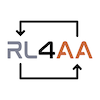Speaker
Description
In the quest to harness the full potential of particle accelerators for scientific research, the need for precision and efficiency in their operation is paramount. Traditional tuning methods, while effective, fall short in optimising performance swiftly and accurately, leading to underutilisation of valuable beam time. This study applies deep reinforcement learning to autonomously tune transverse beam parameters of the ARES linear accelerator at DESY, pioneering in particular the use of domain randomisation to achieve the zero-shot transfer of a policy trained on a computationally cheap simulation to the real particle accelerator facility. We demonstrate that our approach significantly enhances tuning speed and operational efficiency, thereby promising to accelerate scientific discoveries by making experimental setups more reproducible and efficient.
| Possible contributed talk | No |
|---|

